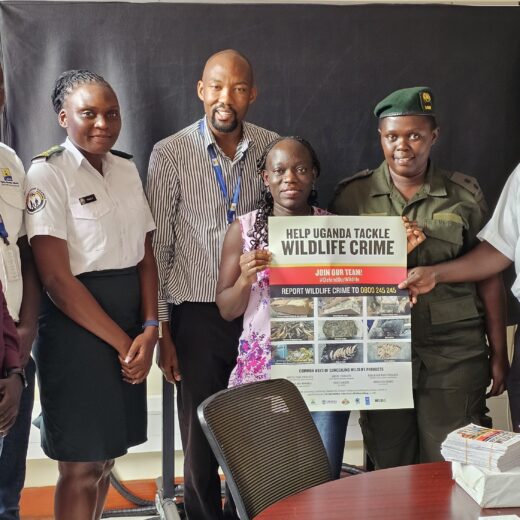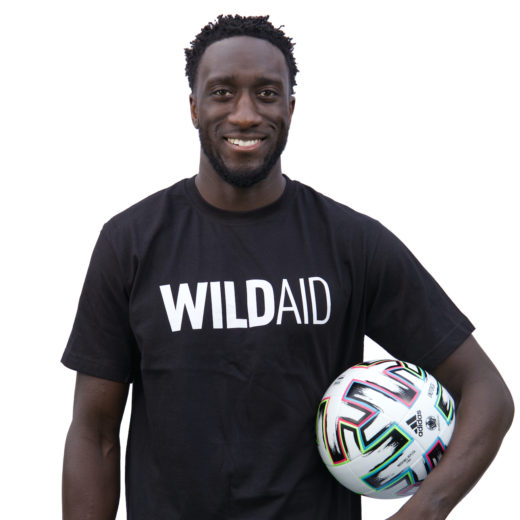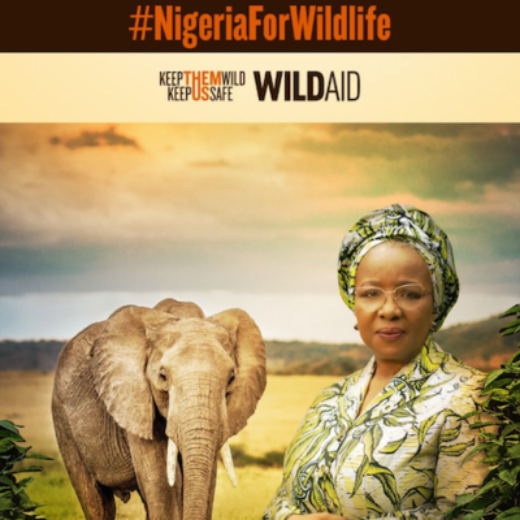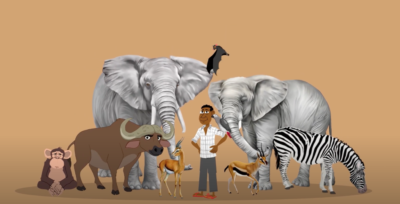
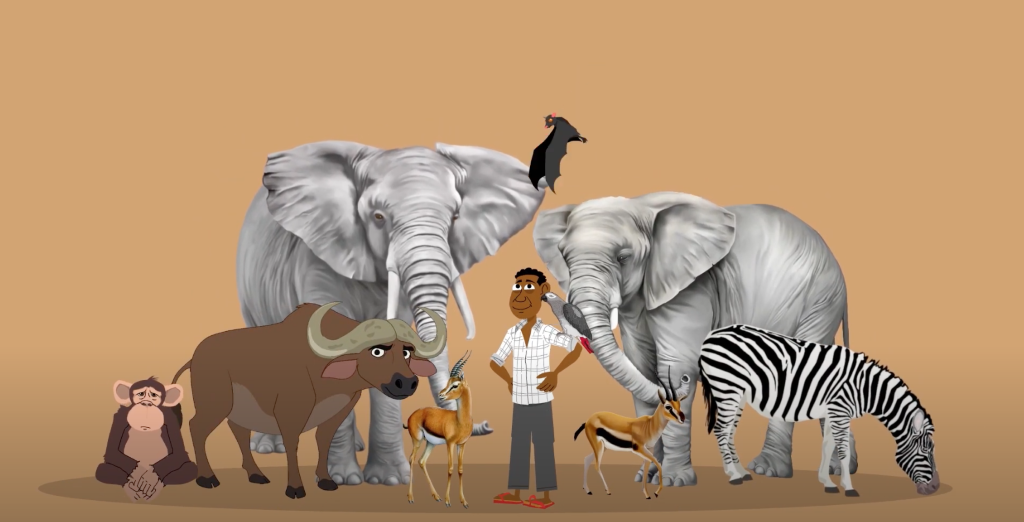

WildAid is releasing a new animation in six widely-spoken languages aimed at filling this gap. The cartoon, made by Kenyan animator Mark Kinuthia, follows the journey of Oringo, who, after cutting down a tree with a chainsaw, learns how his actions could cause the next pandemic. It culminates with Oringo scolding his neighbor who is preparing to roast a pangolin over an open fire, before releasing it back into the wild.
Throughout the two-minute piece, viewers are reminded of the many benefits that wild animals bring humans, taking care not to create or reinforce negative associations between wildlife and disease. The underlying message is that all life systems on earth are connected; if one is damaged or destroyed, all creatures – including us – suffer. It is up to all of us to do our part to prevent this.
With COVID-19 estimated to cost the global economy US$28 trillion in lost output, it is clear that preventive measures such as curbing deforestation and the illegal wildlife trade are not only financially more viable (costing about $260 billion over 10 years), but also lend other benefits like mitigating climate change. We feel it is important to explain these connections in a clear and compelling way by linking them to individual actions, building on global calls for a more holistic approach to tackling environmental problems.
Thus, the animation’s call to action – aimed mostly at people in urban areas – implores people not to eat, buy, or trade in risky bushmeat. This will form part of a wider campaign that WildAid will launch next year in Cameroon, Gabon, Nigeria, and Uganda that aims to reduce the consumption of bushmeat in urban areas, relieving pressure on wild animal populations and reducing risks of future pandemic. As our tagline says: Keep them wild, keep us safe.
WildAid is working to bring an end to the illegal poaching of wildlife throughout Africa by raising awareness about the economic and cultural value of wild animals. WildAid is active in South Africa, Kenya, Tanzania, Cameroon, Gabon, Nigeria, and Uganda.
Stay in touch and get the latest WildAid updates.
SIGN UP
